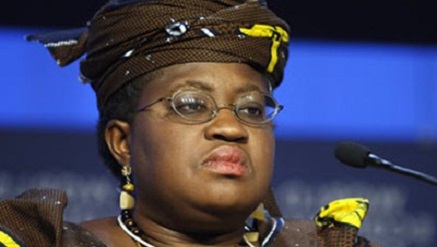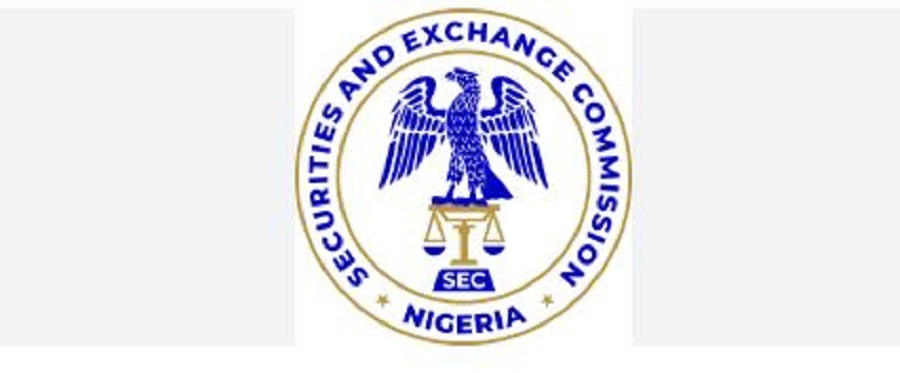E-Financial
Why Nigeria is Corrupt by Okonjo-Iweala

Dr. Ngozi Okonjo-Iweala, minister of Finance and Coordinating Minister for the Economy, has claimed that lack of institutions, systems and processes to block and prevent corruption, alongside the problem of impunity in Nigeria, is basically the reason that corruption has been so hydra-headed in the country and needs to be cracked and tackled.
Okonjo-Iweala said that corruption in Nigeria needed to be tackled from the root causes while technology must be deployed to block leakages in the economy.
She spoke at a forum organized by the Catholic Caritas Foundation of Nigeria under the Catholic Bishops Conference of Nigeria (CBCN), with the theme, “Blocking Leakages in the Economy Amidst Dwindling Oil Revenue,”
“That is what this administration is doing, tackling the root cause of corruption,” she explained. “The problem is that we have been looking at the symptoms and not the causes of the disease. The cause of the disease is that we don’t have the institutions, systems and processes to block and prevent corruption in the first place, that is the only difference between us and people abroad.
“So if we arrest people for being wrong, which we must, I believe that impunity in the country has to be tackled, but behind that impunity, if you don’t do something to stop the sources, the next set of people will also come. Today, about 14 people are standing trial over the pension scam.
“We have a system that is cash-based, but we have introduced Government Integrated Financial Management System. 14 agencies in December tried to pay more than what was programmed but the system locked them out and this led to the delay of their staff salaries until the agencies were restored manually. We have been able to weed out 62, 892 ghost workers and saving about N209 billion.”
Rev Fr Ralph Madu, CBCN secretary general had earlier observed that the negative reports about the nation’s economy call for concern, and that Nigeria will not turn into a failed state, stressing that the government needed to collaborate with the church in areas of comparative advantage.
Also Rev Fr Everistus Bassey of Caritas Nigeria, argued that economic progress should not be measured solely by the Gross Domestic Product (GDP). Rather, but the well-being of a nation should be measured by a series of indicators linked to social protection systems.
Such includes access to quality services, decent work, adequate, safe and nutritious food, adequate housing, personal safety and basic income security, as well as a safe, clean, healthy and sustainable environment.”
The minister explained further: “The first time I was in government, Nigeria was second to the bottom on the Transparency International Corruption Index, it was 1.4, 132 out of 133 countries; we said we must do something to improve and by 2006, when we left government, it was 2.2 out of 10 and 2011, it was 2.4 while the score now is 2.7.
“I am not saying that 2.7 is a good score, Nigeria needs to move to 6 or 7. Even if we don’t have perfection, we must not sell to our children a score of 2.7, we must fight to move that number.”
Okonjo-Iweala explained that a growing economy that does not touch people’s lives is not the type desired. However, she noted that if the economy does not grow, poverty cannot be addressed. Therefore, “we must focus on centres that create jobs, that is the way to tackle poverty.
“Agriculture promises to be a sector that could be used to address poverty but it has to be made attractive. Housing has a social impact – it puts a roof over your head and gives you a stake. We need to create an institution that would pump in liquidity into the housing sector.
“We want to create about 200,000 mortgages annually, we need evidence-based discussions in the country, we need to promote entrepreneurship; 5,400 entrepreneurs have been created by the present administration. We are also supporting the manufacturing sector to create decent jobs.”
More so, “the Nigerian economy as at today is diversified, what is not diversified is the source of income as oil contributes 70 per cent of the nation’s revenue. We need to broaden our tax base, audit and look at those abusing exemptions. We gave ourselves a target of recovering N70 billion but recovered over N100 billion. That is an example of how we are blocking leakages.”
On excess crude account, the minister said: “They said we should not save, that the rainy days are already here and we should share the excess crude money.”
E-Financial
FIRS Decries Cross-border Tax Crimes

Dr Zacch Adedeji, Chairman of the Federal Inland Revenue Service (FIRS), has stated that cross-border tax crimes had undermined effort of countries to raise revenue for development.

He added that cross-border tax crimes distorted fair competition because compliant companies pay a higher cost for business and appear less profitable.
He also challenged global leaders to tackle the rising cross-border crimes that have disrupted revenue mobilisation and economic growth. Adedeji threw the challenge while delivering a keynote address at the 42nd Cambridge International Symposium on Economic Crimes (CIDOEC) held at the University of Cambridge, United Kingdom.
The symposium has, for over four decades, been a crucible of ideas, a forge for strategies, and a platform where countries chart a collective course against the impact and threat economic crimes pose to countries and institutions.
The global meeting was attended by about 1,000 participants from more than 100 countries, including legislators, policy makers, law enforcement agencies, security and intelligence personnel, regulators, governance and compliance officers, and academics.
Special Adviser on Media to the FIRS boss, Dare Adekanmbi, in a statement, said Adedeji was represented by the Coordinating Director of Proceeds of Crime Management and Illicit Financial Flows and immediate past chairman of the Independent Corrupt Practices and Other Related Offences Commission (ICPC), Professor Bolaji Owasanoye.
“This year’s theme ‘Cross-Border Crimes’ speaks directly to one of the most complex and corrosive challenges of our interconnected world. “In a global economy where capital can move faster than law enforcement, and where digital and legal arbitrage often outpace regulation, the fight against crossborder economic crime is, by necessity, both local and global, both urgent and pressing.
“Modern day cross border crimes remind us that borders and boundaries have become virtual and distance irrelevant to the perpetration of crime and the negative impact on victims,” said Adedeji, who is also the Special Adviser on Revenue to President Bola Ahmed Tinubu.
On corporate or natural citizens who evade, avoid, fraudulently manipulate tax obligations by exploiting the intricacies of international trade or international finance, the FIRS boss said they have become implicated in cross border crimes.
He said: “When corporate or natural persons earn income in one country but hide same in another country, when they deceive, conceal or falsify records, they undermine the integrity and fiscal aspirations of the two countries they are manipulating. “When they hide income and assets in secrecy in some jurisdictions to avoid home-country taxes, they are hurting the fiscal target of home country.”
E-Financial
NGX Suspends Three Firms over 2024 Financial Results

Nigerian Exchange (NGX) has suspended three insurance companies on the exchange for failure to release financial results for the 2024 fiscal year.

The affected underwriting firms are Regency Alliance Insurance Plc, International Energy Insurance Plc, and Universal Insurance Plc.
As a result of the embargo, shareholders and other investors will not be able to trade their stocks on the local stock market, according to a notice signed by Obioma Oge for the Head of Issuer Regulation Department of the NGX.
In the statement, it was disclosed that the effective date for the suspension of the three organisations was Monday, September 1, 2025.
It was in line with Rule 3.1, Rules for Filing of Accounts and Treatment of Default Filing, (Default Filing Rules), which provides that if an Issuer fails to file the relevant accounts by the expiration of the cure period, the exchange will: a) send to the issuer a second filing deficiency notification within two business days after the end of the cure period; b) suspend trading in the issuer’s securities; and c) notify the Securities and Exchange Commission (SEC) and the market within 24 hours of the suspension.
However, the embargo may be lifted if the trio released their outstanding financial statements for “the year ended December 31, 2024.”
E-Financial
SEC Launches Redesigned Website to Boost Transparency, Investor Safety

Securities and Exchange Commission (SEC) Nigeria has officially launched its newly redesigned website, marking a significant step toward enhancing digital engagement, regulatory transparency, and investor protection.

The regulator, in a statement on Monday, said the upgrade introduces a modern design, enhanced functionality, and a streamlined user experience aimed at investors, market operators, and the general public.
According to the SEC, the new platform features improved navigation, consolidated resources such as regulatory guidelines and publications, and a mobile-friendly design.
“This comprehensive upgrade introduces a modern design, enhanced functionality, and a streamlined user experience,” SEC said.
“The restructured platform ensures critical information is better organized and more accessible for all stakeholders, including investors, market participants, and the general public.
“Key enhancements include an intuitive menu and site structure for finding information quickly.
“Consolidated Resources: Key documents, regulatory guidelines, and publications are now easier to locate. A responsive design optimized for desktop and mobile devices.
“The initiative underscores the Commission’s ongoing commitment to transparency, operational efficiency, and improved stakeholder engagement.”
According to Emomotimi Agama, director-general (DG) of SEC, the website redesign reflects “our dedication to continuous improvement in service delivery and communication”.
“This digital advancement is a significant step in building a more transparent and accessible Commission, enhancing our engagement with the capital market and the investing public,” Agama said.
Also speaking, Samiya Usman, executive commissioner for corporate services at SEC, said the focus went beyond aesthetics.
“By simplifying access and logically organizing content, we have created a powerful platform that supports our mission to develop and regulate a fair, efficient, and transparent capital market,” the commissioner said.
The SEC urged stakeholders to explore the website and use its features to access regulatory updates, news, and services.

 Telecom3 days ago
Telecom3 days agoMTN Nigeria Empowers over 3,000 Customers with ₦579m in Mega Billion Promo

 News3 days ago
News3 days agoSuri’s Memoir Sparks Visionary Dialogue with Zimbabwean Ministers on Africa’s Future

 E-Financial3 days ago
E-Financial3 days agoUnion Bank of Nigeria Completes Merger with Titan Trust Bank

 E-Financial3 days ago
E-Financial3 days agoAMMBAN Faults CBN’s 60-day Deadline on PoS Geo-Tagging

 News3 days ago
News3 days agoAdlantique Named Nigeria’s Best in Digital Marketing, Content Creativity @ 2025 Beacon of ICT Awards

 General News3 days ago
General News3 days agoAirtel Africa Foundation Presents Nigerian Students with Tech Scholarships

 Telecom3 days ago
Telecom3 days agoSwitch Solutions to Lead Cybersecurity Innovation @GITEX Nigeria 2025

 General News2 days ago
General News2 days ago6 Best Apps to Recharge Airtime & Data in Nigeria for Glo, Airtel, MTN, 9mobile















